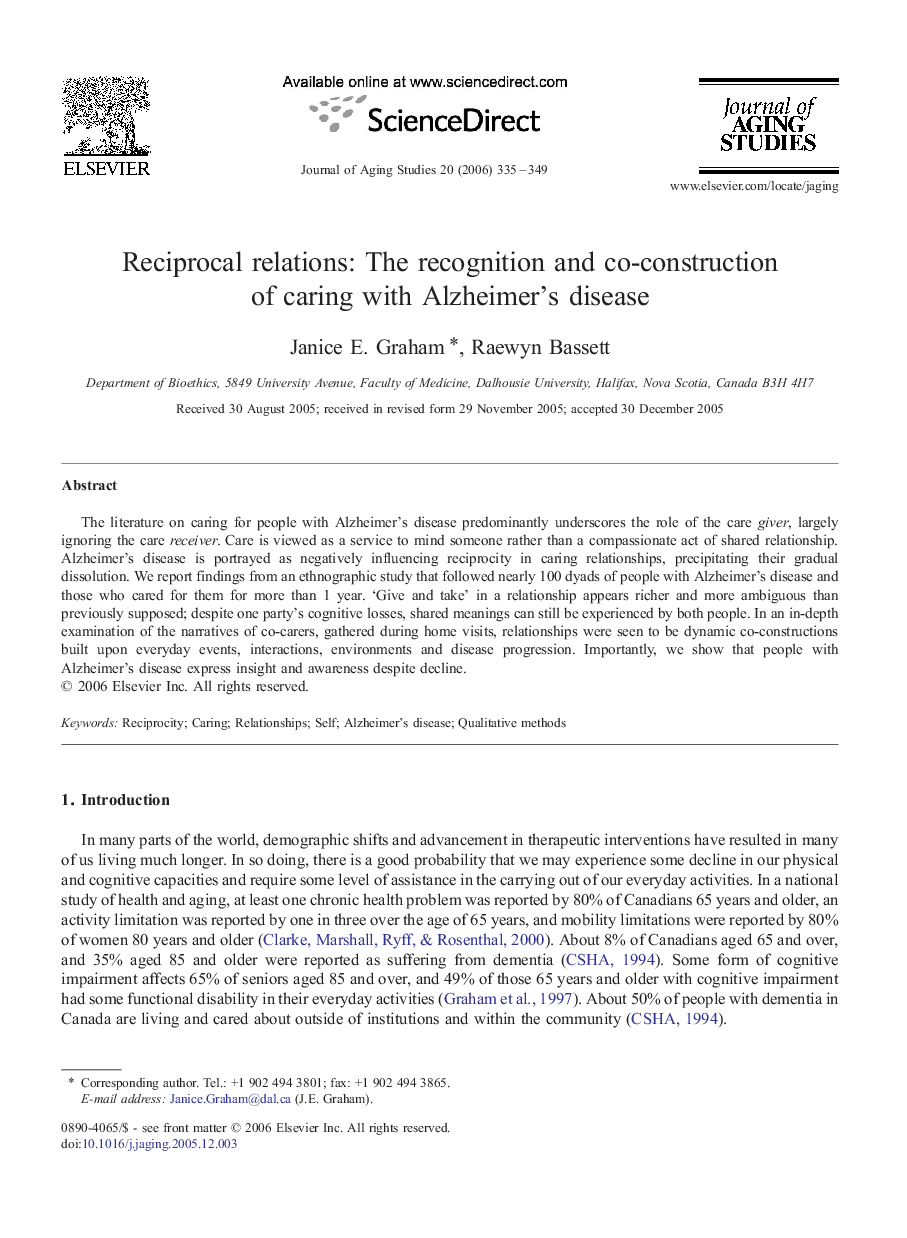| Article ID | Journal | Published Year | Pages | File Type |
|---|---|---|---|---|
| 1082128 | Journal of Aging Studies | 2006 | 15 Pages |
The literature on caring for people with Alzheimer's disease predominantly underscores the role of the care giver, largely ignoring the care receiver. Care is viewed as a service to mind someone rather than a compassionate act of shared relationship. Alzheimer's disease is portrayed as negatively influencing reciprocity in caring relationships, precipitating their gradual dissolution. We report findings from an ethnographic study that followed nearly 100 dyads of people with Alzheimer's disease and those who cared for them for more than 1 year. ‘Give and take’ in a relationship appears richer and more ambiguous than previously supposed; despite one party's cognitive losses, shared meanings can still be experienced by both people. In an in-depth examination of the narratives of co-carers, gathered during home visits, relationships were seen to be dynamic co-constructions built upon everyday events, interactions, environments and disease progression. Importantly, we show that people with Alzheimer's disease express insight and awareness despite decline.
